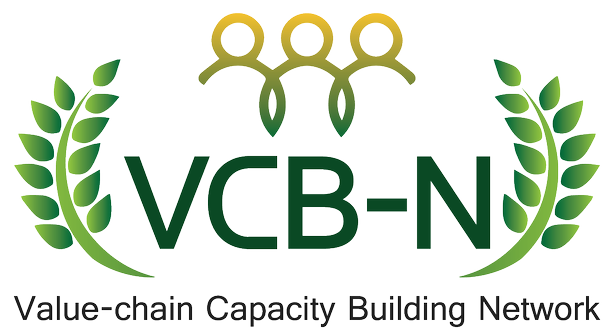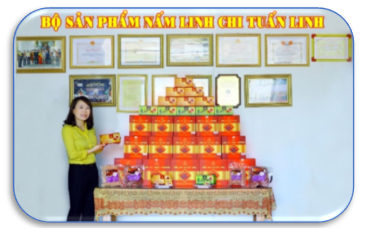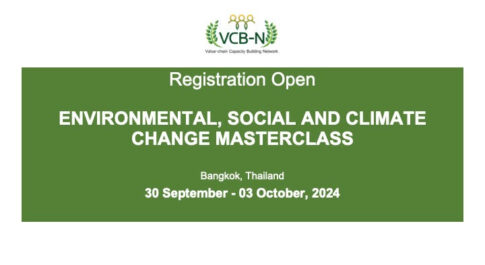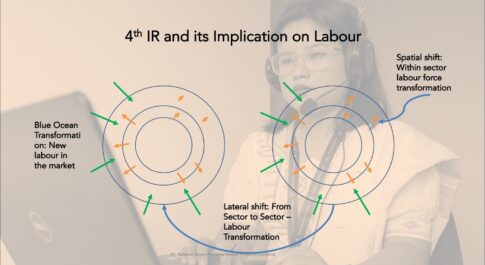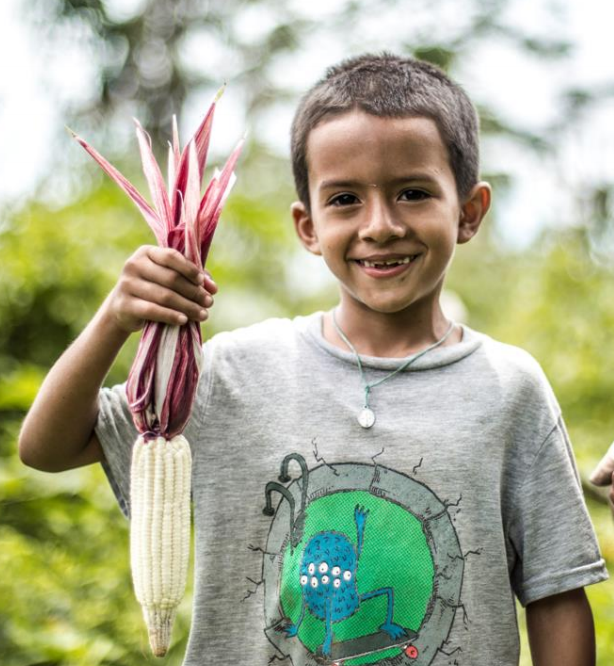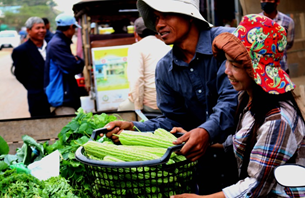
Good practice
Make Sufficient Food with Quality
The following good practice is conducted by Dr. Meas Pyseth. The case study was selected and presented in Mekong Knowledge and Learning Fair (IFAD) by representative from Cambodia.
(For presentation in the event, please click here)

Background
ASPIRE is a programme of the Royal Government of Cambodia supported by the International Fund for Agriculture Development (IFAD) and other development partners. ASPIRE works with farmers and especially with poor and vulnerable smallholder farmers, to assist them to develop their farms into profitable and resilient diversified agribusinesses. By 2021, at least 10 provinces have adequate resourcing through the Programme Budget to implement Cambodia Model for Agriculture Extension objectives. One of the issues that ASPIRE wants to solve is food shortage in the farming households, as majority of smallholder farmers use traditional farming method that causes low yield, which is not even sufficient for their annual family consumption. It is indispensable, as part of the activities being carried out in the various provinces targeted by ASPIRE, specifically Kampong Chhnang, to improve the living conditions of the people in rural areas. Thus, one of the objectives in implementing some of the training programs in the Farmer Field School (FFS) in Kampong Chhnang is to ensure sufficient food and intake of nutritious meals for smallholder farmers and their family members to have healthy lives, through Multi-Purpose Farming (MPF) System.
About ASPIRE program
Innovations / Good Practices
Since Kampong Chhnang was selected as one of the target provinces of ASPIRE in 2016, it was able to undertake/It still has high potentials for undertaking the following activities:
- Increase of agriculture productivity– FFS conducted training on vegetable and rice cultivation, chicken raising, animal husbandry, and home-grown vegetable production/horticulture production in order to increase the yields of smallholders for household rational consumption and minor selling as well for generating small extra incomes;
- Dietary life improvement – In coordination with some NGOs, Provincial Department of Agriculture, Forestry and Fisheries (PDAFF) conducted additional training on nutrition, as well as the measurement activities on children’s nutritional statuses to the farming communities.
- Promotion of information and experience sharing in safe agriculture practices such as organically integrated farming system.
- MPF Technique was re-introduced by PDAFF-Kampong Chhnang in implementing farming system in ASPIRE, which is an agricultural innovation that aims to enhance the productivity of small-scale/smallholder farmers as well as the quality and diversity of their food intake. The MPF model rests on the assumption that better soil management, and diversification of farming activities will result in increased yield and diversified food production, thus contributing to improved family income and nutrition, good health status and well-beings.
- The System of Rice Intensification (SRI) was introduced thru a series of trainings at the FFS. SRI is a rice cultivation method of achieving high yield without relying on breed/seeds improvement or chemical fertilizers. It enhances the growth ability of rice plant by employing techniques such as transplanting single seedling in line of one to two weeks old in wide spacing, controlling water level of rice strictly and weeding thoroughly. As this method brings in two to three times higher yield harvested as compared with conventional cultivation method while input of seeds and water are decreased significantly, it has been introduced and practiced by many smallholder farmer beneficiaries in Kampong Chhnang.
Impact
- There are 3,372 households (2,402 F) through Farmer Field School process and demonstration, benefited from improved climate resilient agricultural technologies. There are 1,598 farmers (1,204 F) accessing facilitated advisory services of crops/livestock from PDAFF/District Agriculture Office (DAO) staffs, Commune Extension Workers (CEWs), Input suppliers and Agriculture Cooperative (AC).
- Before joining ASPIRE as one of the target beneficiaries, a family of Mr. KongSavorn with 4 members earned only around 8,000 Riels (US$ 2) to 10,000 Riels (US$ 2.5) per day from their vegetable harvest.
- After joining ASPIRE’s Farmer Field School and learning about MPF technology and organic farming system in early year 2017, the vegetable harvest of the couple has increased to/in about to100 kg. to 300 kg per day on one-hectare farmland.
- With this yield, the family earns about an average of 200,000 Riels ($50) to 300,000 Riels ($75) per day.
Facilitating Factors / Challenges
- Farmer Field School of ASPIRE Programme provides training to selected farmers on land preparation methods, climate adaptation, typical vegetable selection method, instructions on the proper organic fertilizer use, safe pesticide spraying methods, and market linkage.
- In terms of vegetable cultivation, the PDAFF in Kampong Chhnang coordinated with Cambodian Center for Study and Development in Agriculture (CEDAC) in conducting some workshops in order to share successful experience and achievements among farmers on vegetable cultivation, discuss future plans for becoming professional vegetable producers, and learning about the process and importance of internal control system (ICS) to maintain quality standards among vegetable produce.
- The MPF System required change in land use in the farming communities in Kampong Chhnang while farmers usually retain majority of their land for rice cultivation.
- There were some problems on sustainability of adopting the system because of financial issues. However, the challenges were reduced because of the support extended by some Agriculture Cooperatives (ACs) and other farmer organizations in the target villages of ASPIRE.
Lessons Learned
- Because of the knowledge gained by farmers from the workshop in ensuring food safety, quality standards and nutrition, the consumers have built more trust and demanded more products. As a result, farmers in Kampong Chhnang need to work harder to improve both the quality and quantity of their products and to ensure that organic vegetables are available in the market at all times. The farmer beneficiaries became committed vegetable producers and work harder in producing more vegetables to supply the market.
- The perception of the farmers on the contribution of an MPF system can make to household food security is very positive. In some discussions with farmers, it showed that farmers who have adopted this system observed increased food supply – thus reducing their expenditure on food – and greater income from the sale of surplus produce.
- The MPF model rests on the assumption that better soil management, and diversification of farming activities will result in increased yield, intensified and diversified food production, thus contributing to improved family income and nutrition.
Recommendations
- PDAFF Kampong Chhnang keeps its progress for outsider affiliation to provide new updated techniques for the sake of farmer production growth.
- Even though the MPF system required change in land use, some farmers still bear in mind to do their farm as family habit. So, more best practiced from other farmer demos, and well MPF system oriented are needed to disseminate widely.
- Strengthening the technical standard application of both chemical and natural fertilizers by applying an accurate amount by ages (in days) of each of the multiple crops in day calculation method, so that it helps enable the farmers to practice in their farm easily and sharable replications between farmers.
You may want to read
